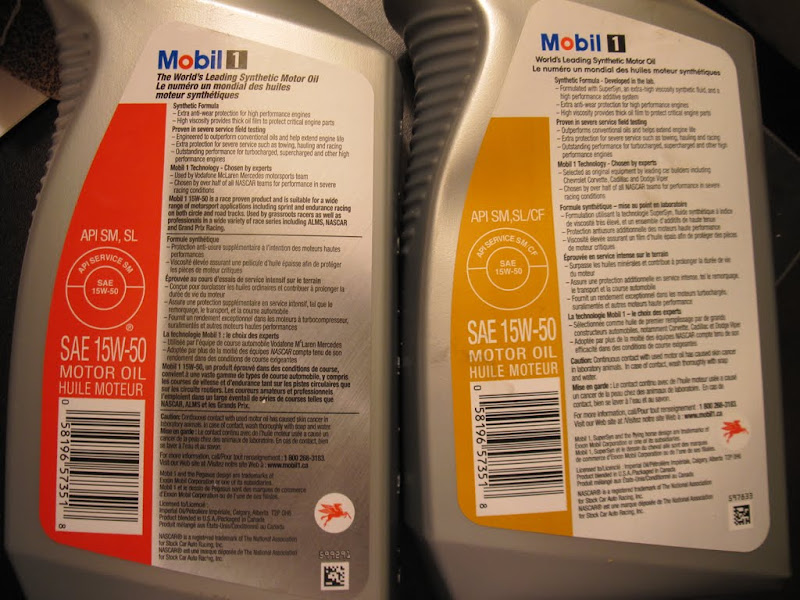Just came back from Canadian Tire with four liters of Mobil1 15W-50. On closer look, I found out that there are two slightly but obviously different oils:


I've been using the one on the right (the brown-ish label, for lack of a better identification) for years. There have been some changes over the years (red cap, gold cap, etc), but there was always only one type of Mobil1 15W-50. Now there's the other one (red label) that I haven't seen before and it has an obviously different formulation - the CF designation is now gone. They both cost the same and I'm sure no harm would come from using either or both, but I am a little confused.
Can anyone shed some light on this?
I've been using the one on the right (the brown-ish label, for lack of a better identification) for years. There have been some changes over the years (red cap, gold cap, etc), but there was always only one type of Mobil1 15W-50. Now there's the other one (red label) that I haven't seen before and it has an obviously different formulation - the CF designation is now gone. They both cost the same and I'm sure no harm would come from using either or both, but I am a little confused.
Can anyone shed some light on this?
